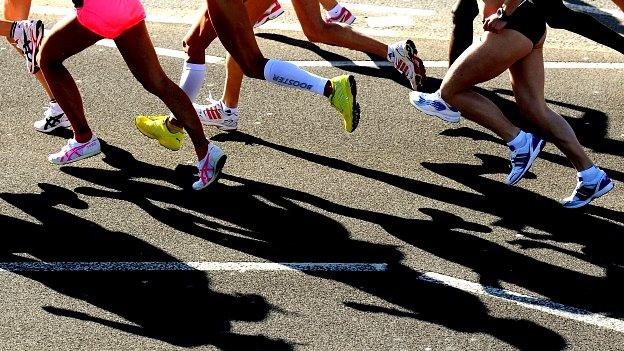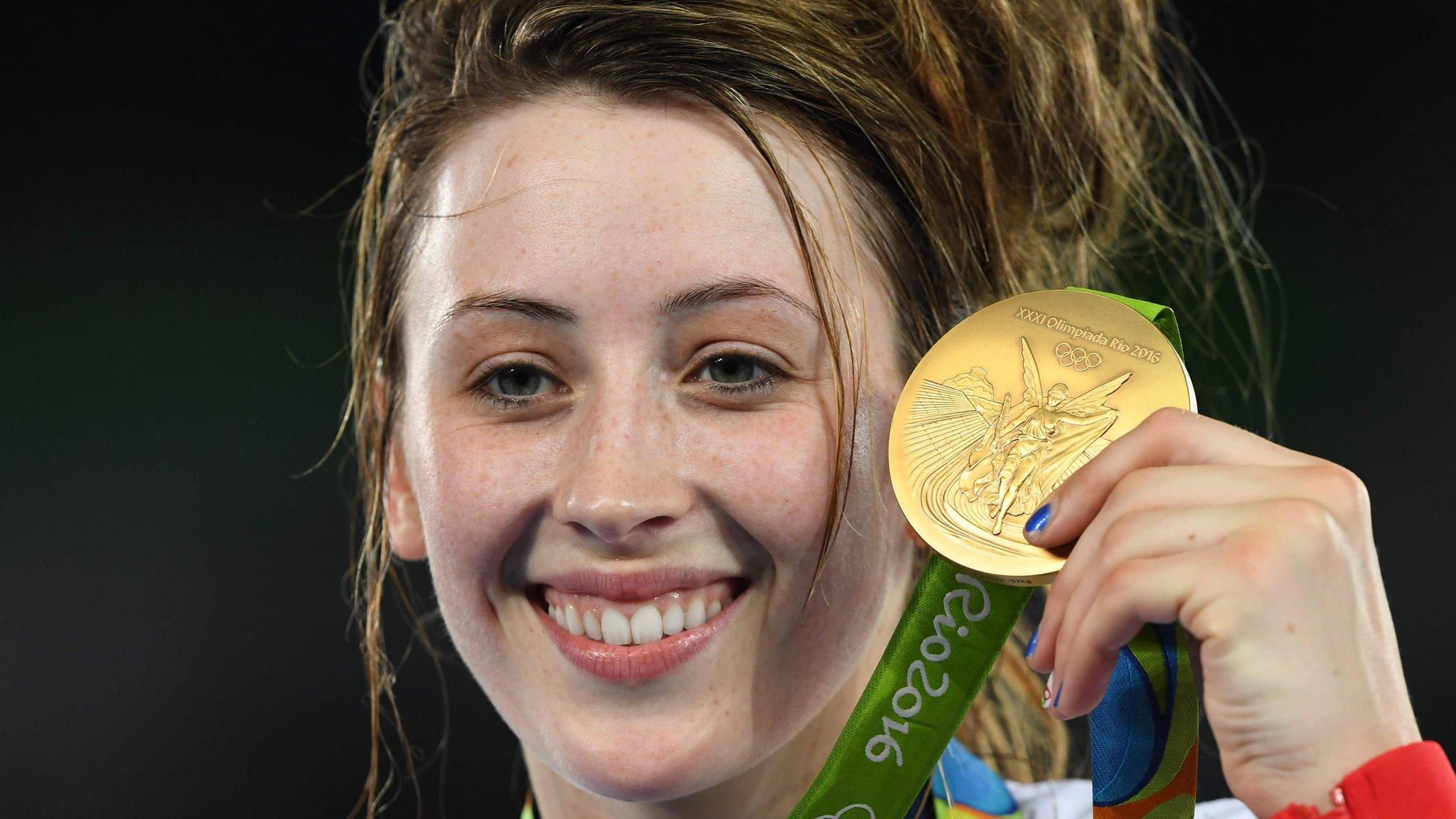Sport England: Women playing sport reaches all-time high, figures show
- Published
This Girl Can: New campaign urges more women to get active
The number of women playing sport regularly in England has reached an all-time high of 7.21 million, research published by Sport England shows.
The Active People Survey, external found the number of participants has increased by 250,000 since the organisation launched its This Girl Can, external campaign in 2014.
The difference between the number of men and women playing sport has narrowed to 1.55 million.
Overall, there were 229,400 more people playing regular sport than last year.
That increased the total number of over-16s playing sport in the 12 months up to 30 September 2016 to 15.97 million.
The figure is 1.88 million higher than that of 2005, when London won the right to host, external the 2012 Olympic and Paralympic Games.
Sport England chief executive Jennie Price said: "These figures are really encouraging, especially the substantial increase in the number of women playing sport and being active every week.
"Our This Girl Can campaign set out to tackle the gender gap, so to reduce it significantly in just two years shows we are making a difference."
Sport England said going to the gym remained "hugely popular" with 7.10 million going on a weekly basis, an increase of 286,400.
It added: "Exercise classes, like spinning, pilates and boxercise continue to attract large numbers of people, especially women."
Other sports to have seen a rise in participation include netball, up 25,400 to 180,200, hockey up 4,500 to 92,700 and gymnastics, up 13,400 to 65,100.
Swimming saw an increase of 11,000 following several years of decline to reach a total of 2.52m people swimming at least once a week, while participation in football rose by 29,900 to 1.84 million.
However, Sport England said there had been a decline in two sports which had grown strongly in the past: athletics and cycling.
Athletics is down 5% to 108,400, while cycling participation fell 4% to 85,200.
It said both sports "remain popular with people in midlife", but were struggling to attract people under the age of 25.
- Published10 December 2015

- Published8 December 2016

- Published13 August 2018